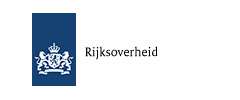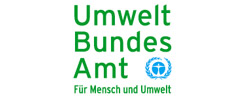WECF present at 5th Global Forum on Sustainable Development
How to address the complex problems of our increasingly globalized and unpredictable world?
19.12.2007 |Chantal van den Bossche
FORUM MONDIAL DU DEVELOPPEMENT DURABLE
PARIS, SENATE, December 6th and 7th, 2007
On December 6 and 7 WECF Members participated in the 5th Global Forum on Sustainable Development in Paris which took place at the Senate. This event was organised by Passages, an independent association, under the patronage of the President Nicolas Sarkozy.
The objective of the Forum was to address the complex problems of our increasingly globalized and “unpredictable world”, by exchanging perspectives and experiences with a view to developing strategies towards sustainable development.
The opening session, conducted by Mr. François-Poncet, Senateur and M. E. Mallet, Journalist, recalled the challenges that we face: climate change, energy insecurity, water conflicts and emerging health threats. In quoting President Nicolas Sarkozy: Emile Mallet stated “A priority must be placed on reducing insecurity and at the same time fighting inaction, since the biggest threat for the world would be inertia”.
Nuclear energy: a solution for the planet?
Great emphasis was placed by the French panellists from the Academie of Sciences, EDF, and prestigious engineering schools on the role of nuclear energy in addressing CO2 reduction and hence climate change. Viability and its readiness as a technology to address large scale energy needs were cited as reasons to continue on a path for nuclear energy, in addition to exporting this technology to other countries.
We express great concern that these views hide the uncontrollable risks linked with nuclear plants, which have been shown in such disastrous accidents in Chernobyl and more recently Niigata, Japan, and the very-close-to- disaster in Forsmark, Sweden, which have had terrible impacts on populations. In a recent article published by l’Express, Lester Brown, founder of Worldwatch Institute, stated he did not favour nuclear energy to fight climate change because analyses forget to take into account the very high costs of risks, nuclear plants construction and dismantling, nor those of managing nuclear waste.
Today in Bali discussions on nuclear energy are blocking a possible consensus for common targets: while some try to make nuclear energy part of the Clean Development Mechanism, NGO’s point out several important arguments against it:
Nuclear energy is too expensive: 3-4 Billion dollars for one nuclear plant, too dirty: a recent german study conducted by the Office for Radiation Protection (BfS), which reports to the German environment ministry, indicates much higher rates of leukemia cases in children living near nuclear plant; and too insignificant: nuclear energy satifies today only 2-3% of the worls energy needs; even if we could multiply by 3 the number of nuclear plants across the world, it could only contribute to a 9% reduction in CO2 emissions (Ph. Girard expert of the Comité à l’énergie Atomique, Mai 2006)
How about renewable energy?
Little mention was made of alternative energies such as solar or wind, although EDF did mention the need for more research to improve solar technologies. Reference was made to Germany and Denmark that use wind energy and still had greater CO2 emissions due to their dependence on fossil fuel because of the inconsistency of wind as an energy source. However, these assertions did not consider that Germany decreased its CO2 emissions by 19% between 1995 and 2005, while France only by 1,4%. Is France not putting itself in a weak competitive position by only focussing its efforts on nuclear energy while its European neighbours are forging ahead with alternatives?
The President of Congo, who co-sponsored the event, spoke about the importance of his country as bordering the second lung of the world, and his efforts to prevent deforestation by planting Eucalyptus trees. In answer to the question of energy production, he identified the great potential for hydroelectricity and solar. What could be the ecological and human consequences of building a bridge on the Congo River, between Brazzaville and Kinshasa, a project he mentioned? Have potential impacts been assessed? When further questioned on the nuclear energy issue, Pt Sassou N’Guesso stated “Why not, if Africa is exporting uranium, why should it not produce energy from it, like others… Africa is not in the nuclear arms race…”.
WECF wonders whether promoting civilian use of nuclear energy around the world, especially in countries where safety standards would require large investments, really contributes to reducing insecurity.
Research and Innovation: without risks?
Research and Innovation were considered key answers to the sustainable development dilemma. In light of the impact development has on human health, research and innovation in the area of health was another theme that was discussed. Chantal Jouanno, advisor to Nicolas Sarkozy, discussed the precautionary principle with regards to genetically modified organisms and incinerators, suggesting that rather than the precautionary principle, acceptable risk and costs and benefits were more important to consider. Energy, biodiversity and health & environment are the three areas considered by the government to be the most important in addressing sustainable development. Ms. Jouanno cited the importance of the Grenelle de l’Environnement suggesting that impetus should not be lost in implementation.
We welcome this suggestion and express our concern that the very positive spirit of the Grenelle has been strongly undermined by recent events in French politics.
Governance
In light of the importance of decision making in pushing forward the sustainable development agenda, governance of common resources was another theme that was discussed during the two day session. Panelists questioned the efficiency of actual governing bodies like WTO, UNO or UNEP in regards to sustainable development.
Mr. Ghozali, former Prime Minister of Algeria, made some very thoughtful suggestions, among which adopting a completely new life style, that would contribute to new ecological economic growth.
However, can we achieve this goal by founding a new international governing agency, an idea espoused by Mr. Chirac as well Mrs Royal, or should better governance of our common resources not rely more directly on civil society, which gets to the heart of people’s concerns and a true understanding of the urgency needed to address environmental problems?
The organising capacity of civil society has proven in the past to actively counteract the powerful lobbies, which often undermine political efforts for a safer environment.Perhaps it is time that civil society be given its rightful voice in the governance strategy towards a sustainable future.
A. Barre / N. Chaudhuri
14/12/2007

































